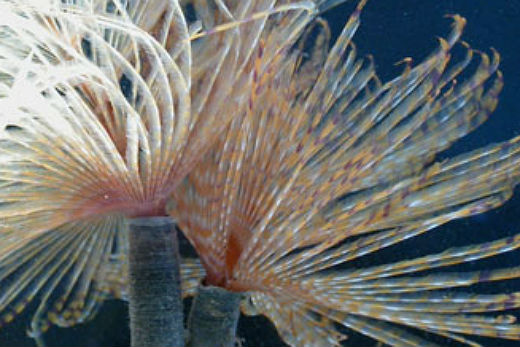The discovery of more Mediterranean fanworm in both Tauranga marinas could herald the end of New Zealand's carefree coastal boating culture.
A single fanworm was first discovered in Pilot Bay in 2013 and during a follow up in June divers found another two fanworms at Sulphur Point Marina, and one at Tauranga Bridge Marina.
Mediterranean fanworm has been found in both Tauranga marinas.
The further search since then has found eight fanworms at the Sulphur Point Marina and six more at the Bridge Marina, says BOP Regional Council general manager natural resource operation, Warwick Murray.
'All but one were on pontoons and one was on a vessel,” says Warwick.
The message for boaties now is to clean up the hull before they embark on a coastal voyage, says Warwick.
'That's certainly the message we want to get across,” says Warwick.
'It's in their interests to clean the hull of their boats if only for fuel efficiency. But definitely from a biosecurity view it's becoming increasingly important.”
Recreational boating is seen as a major mover for the fanworm, which has now been detected in Lyttelton Port, the wider Waitamata Harbour in Auckland, and in Whangarei Harbour.
Left to itself it can form dense groups that could affect native species by competing for food and space. Recent studies have indicated some impact on the establishment of new generations of some species, and on nutrient flow.
The impact on fisheries and aquaculture is not assessed, but the worry is dense beds of fanworm could become a nuisance to recreational and commercial fishers through the clogging of dredges and fouling of other fishing gear.
Fanworm moves from port-to-port on boat hulls, and the additional discovery in Tauranga means regular surveillance is going to be required, says Warwick.
'We will be boosting the surveillance regime so we can pick up any new incursions that come in,” says Warwick.
'And we will be monitoring vessels' arrivals from other ports, to pick up potential carriers and we will be working with the Ministry of Primary Industries to develop a pathway management plan, a plan to ensure that the key pathways these things travel on are controlled, in this case the fouled hulls of vessels.”
How that will be achieved and whether or not there will be movement controls or restrictions on coastal voyages of private vessels is not known.



0 comments
Leave a Comment
You must be logged in to make a comment.